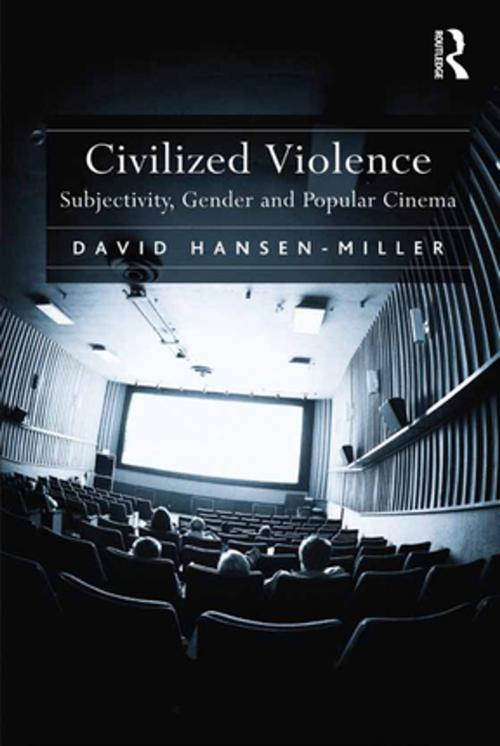Civilized Violence
Subjectivity, Gender and Popular Cinema
Nonfiction, Social & Cultural Studies, Social Science| Author: | David Hansen-Miller | ISBN: | 9781317165422 |
| Publisher: | Taylor and Francis | Publication: | May 23, 2016 |
| Imprint: | Routledge | Language: | English |
| Author: | David Hansen-Miller |
| ISBN: | 9781317165422 |
| Publisher: | Taylor and Francis |
| Publication: | May 23, 2016 |
| Imprint: | Routledge |
| Language: | English |
Civilized Violence provides a social and historical explanation for the popular appeal of cinema violence. There is a significant amount of research on the effects of media violence, but less work on what attracts audiences to representations of violence in the first place. Drawing on historical-sociology, cultural studies, feminist and queer theory, masculinity studies and textual analysis, David Hansen-Miller explains how the exercise of violence has been concealed and denied by modern society at the same time that it retains considerable power over how we live our lives. He demonstrates how discourses of sexuality and gender, even romantic love, are freighted with the micropolitics of violence. Confronted with such contradictions, audiences are drawn to the cinema where they can see violence graphically restored to everyday life. Popular cinema holds the power to narrate and interpret social forces that have become too opaque, diffuse and dynamic to otherwise comprehend. Through detailed engagement with specific narratives from the last century of popular film - The Cabinet of Dr. Caligari, The Sheik, Once Upon a Time in the West, Deliverance - and the pervasive violence of contemporary cinema, Hansen-Miller investigates the manner in which representations can transform our understanding of how violence works.
Civilized Violence provides a social and historical explanation for the popular appeal of cinema violence. There is a significant amount of research on the effects of media violence, but less work on what attracts audiences to representations of violence in the first place. Drawing on historical-sociology, cultural studies, feminist and queer theory, masculinity studies and textual analysis, David Hansen-Miller explains how the exercise of violence has been concealed and denied by modern society at the same time that it retains considerable power over how we live our lives. He demonstrates how discourses of sexuality and gender, even romantic love, are freighted with the micropolitics of violence. Confronted with such contradictions, audiences are drawn to the cinema where they can see violence graphically restored to everyday life. Popular cinema holds the power to narrate and interpret social forces that have become too opaque, diffuse and dynamic to otherwise comprehend. Through detailed engagement with specific narratives from the last century of popular film - The Cabinet of Dr. Caligari, The Sheik, Once Upon a Time in the West, Deliverance - and the pervasive violence of contemporary cinema, Hansen-Miller investigates the manner in which representations can transform our understanding of how violence works.















